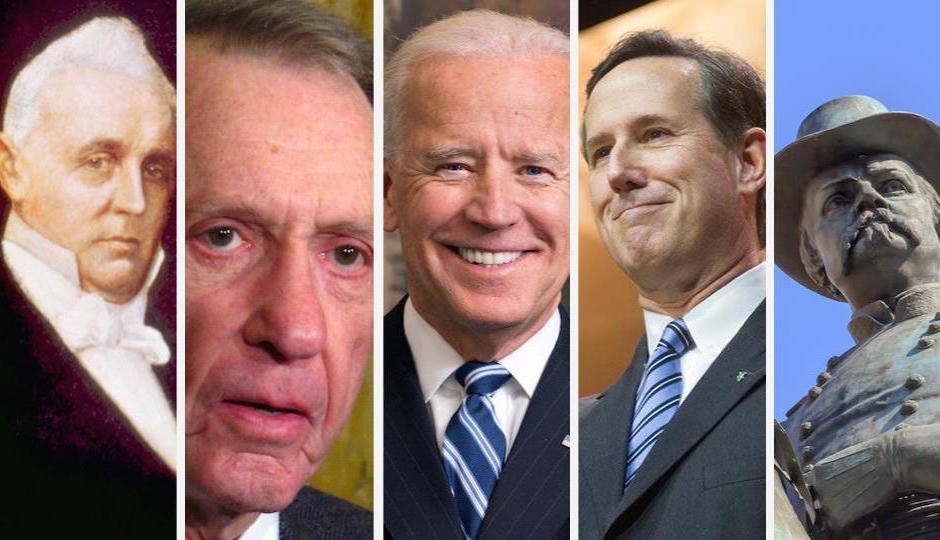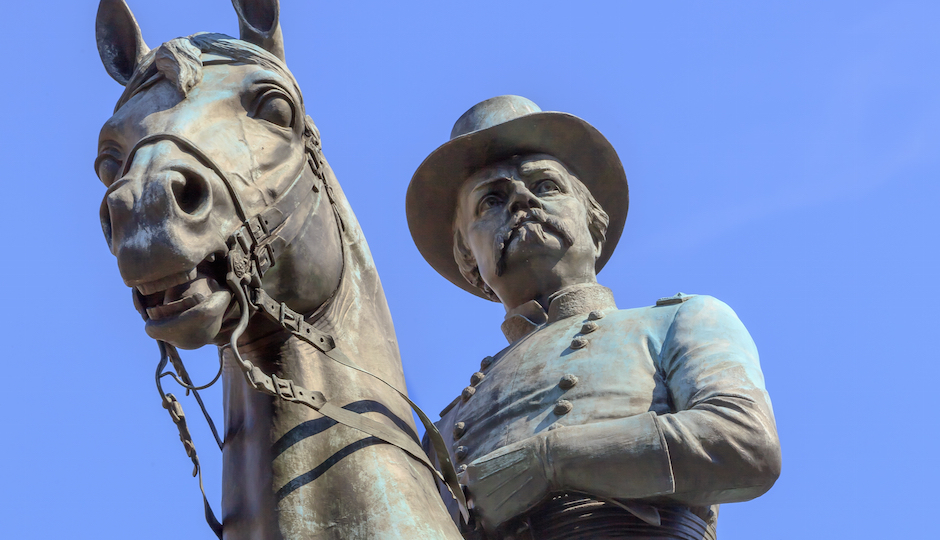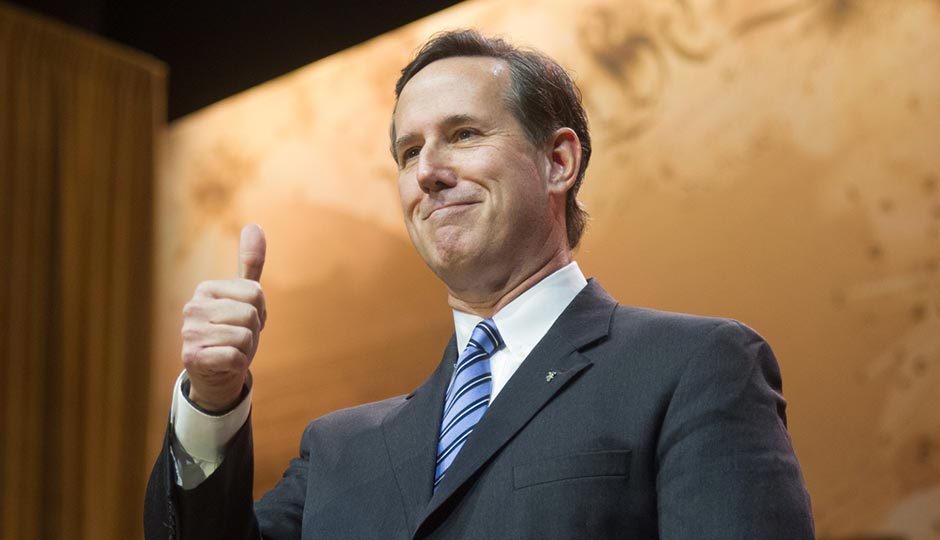What Can Joe Biden Learn From Five Pennsylvania Presidential Losers?

From left: James Buchanan, Arlen Specter, Joe Biden, Rick Santorum, William Scott Hancock.
Pennsylvania has long been regarded as a kingmaker when it comes to presidential politics — we still get awarded “swing state” status by pundits even though it’s been a generation since the state swung to Republicans in a presidential election. But we do a lousy job of electing our own.
The only native of the Keystone State to actually win the presidency? James Buchanan. You might remember him from his stint as The Worst President in American History. (That tends to happen when you stand by and let the nation devolve into ugly, bloody Civil War.) As Joe Biden — Scranton native, longtime U.S. senator from neighboring Delaware (aka “Pennsylvania’s third senator“) — contemplates his own run for the presidency, he might want to consider the woes that have befallen his predecessors.
Here are five notable Pennsylvanians who failed to win the White House:

Shutterstock.com
Winfield Scott Hancock: This hero of the Battle of Gettysburg came pretty close to winning it all in 1880, but lost instead — by a mere 39,213 votes out of more than 8 million cast nationally. (Republican James Garfield beat him, only to be shot months after taking office and dying 11 weeks after that at the Jersey Shore.) His consolation prize? Becoming an early president of the National Rifle Association. “The object of the NRA is to increase the military strength of the country by making skill in the use of arms as prevalent as it was in the days of the Revolution,” he vowed. These days he’s remembered via statues in Washington D.C. and in Philadelphia’s Fairmount Park.
William Scranton: After Hancock, the distance between a Pennsylvanian’s White House ambitions and his ability to reach for them grew ever-wider. Scranton, then Pennsylvania’s governor, mounted a wishy-washy maybe-he-is-maybe-he-isn’t run for president in 1964 — finally agreeing to run just one month before the GOP convention that year. (You could do that then.) He captured 10 state delegations, but the Barry Goldwater juggernaut was just too much. Goldwater, of course, was blown out by LBJ in the general election. Goldwater’s brand of conservative Republicanism — which Scranton was trying to nip in the bud — became the GOP’s default ideology. Kids, there used to be such a thing as a “liberal Republican.”
Rick Santorum: Is actually running for president right now, and more or less has been since Pennsylvania voters turned him out of the U.S. Senate all the way back in 2006. Santorum’s closest call? He won the 2012 Iowa Republican caucuses by 34 votes — but the victory was only recognized a few weeks after the fact, after voters and the media stopped caring. He ended up winning 11 states and effectively came in second place for the GOP nomination. But who remembers that now? Last we checked, Santorum is polling behind … Deez Nuts. Which is perhaps appropriate for the man with the most famous “Google problem” in all of American politics.
Milton Shapp: The Democratic governor of Pennsylvania made history by becoming the first Jew to run for president in 1976. He dropped out of the campaign after 89 days.
Arlen Specter: Specter never quite fit comfortably in either the Democratic or Republican party — like Scranton before him, he ran in 1996 hoping to appeal to moderate and liberal Republicans, which was a losing strategy in the post-Reagan GOP. He dropped out before the primaries, and before the end of his life he switched back to the Democratic party in a desperate, losing fight to keep his Senate seat.
One could look at all this history and slink away quietly. But Biden’s nothing if not an optimist. Maybe he’ll be the first Pennsylvanian to run for president and be good at it.
Follow @JoelMMathis on Twitter.



